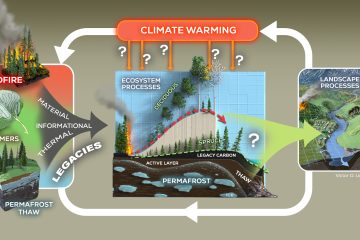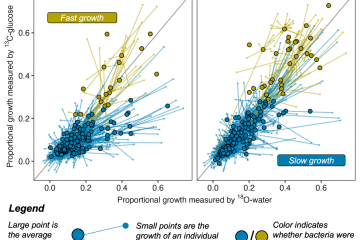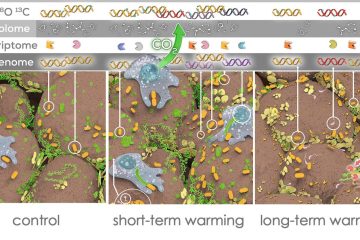Climate warming accelerates temporal scaling of grassland soil microbial biodiversity
Determining the temporal scaling of biodiversity, typically described as species–time relationships (STRs), in the face of global climate change is a central issue in ecology because it is fundamental to biodiversity preservation and ecosystem management. However, whether and how climate change affects microbial STRs remains unclear, mainly due to the scarcity of long-term experimental data. Here, we examine the STRs and phylogenetic–time relationships (PTRs) of soil bacteria and fungi in a long-term multifactorial global change experiment with warming (+3 °C), half precipitation (−50%), double precipitation (+100%) and clipping (annual plant biomass removal). Soil bacteria and fungi all exhibited strong STRs and PTRs across the 12 experimental conditions. Strikingly, warming accelerated the bacterial and fungal STR and PTR exponents (that is, the w values), yielding significantly (P < 0.001) higher temporal scaling rates. While the STRs and PTRs were significantly shifted by altered precipitation, clipping and their combinations, warming played the predominant role. In addition, comparison with the previous literature revealed that soil bacteria and fungi had considerably higher overall temporal scaling rates (w = 0.39–0.64) than those of plants and animals (w = 0.21–0.38). Our results on warming-enhanced temporal scaling of microbial biodiversity suggest that the strategies of soil biodiversity preservation and ecosystem management may need to be adjusted in a warmer world.


